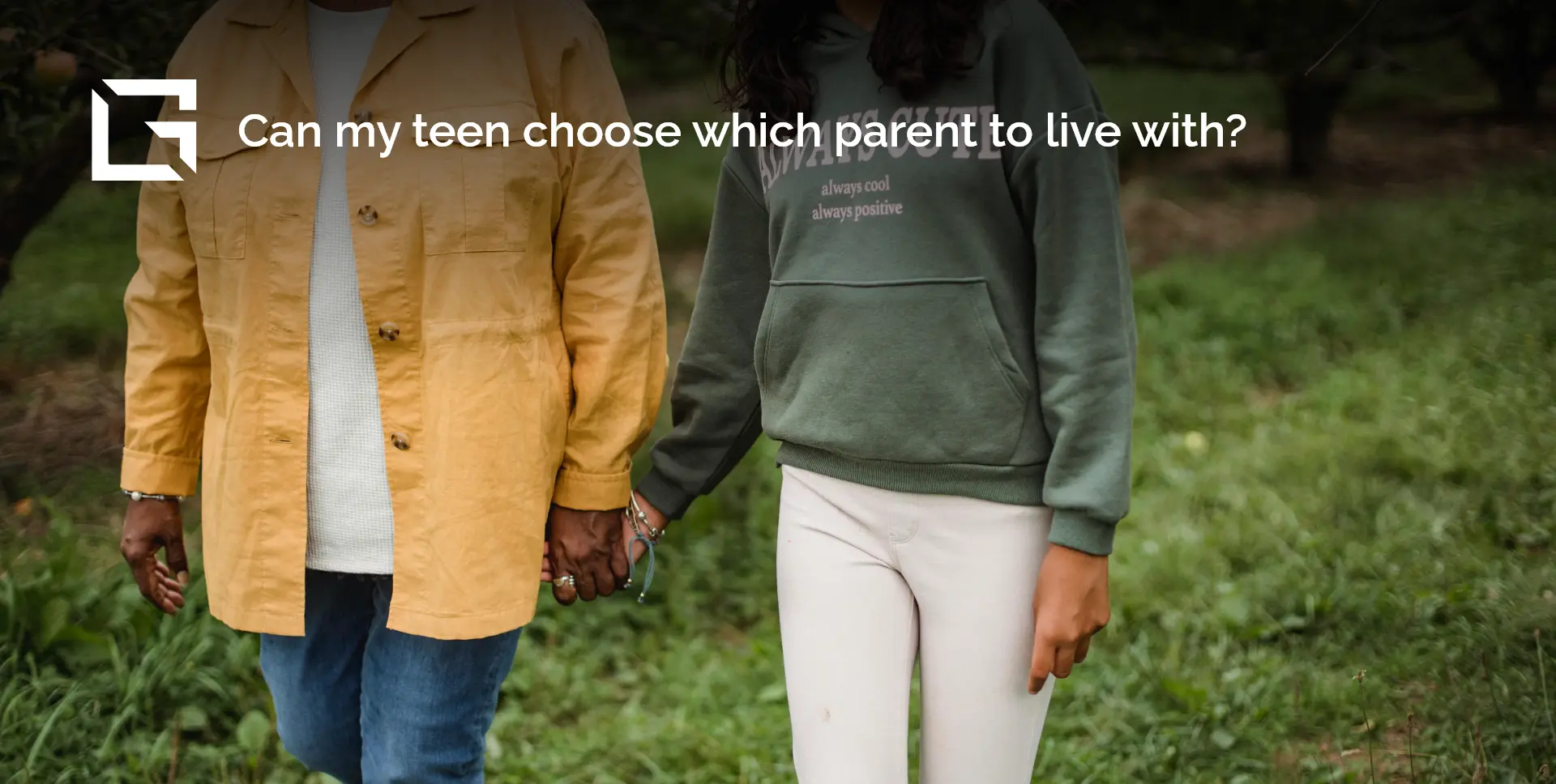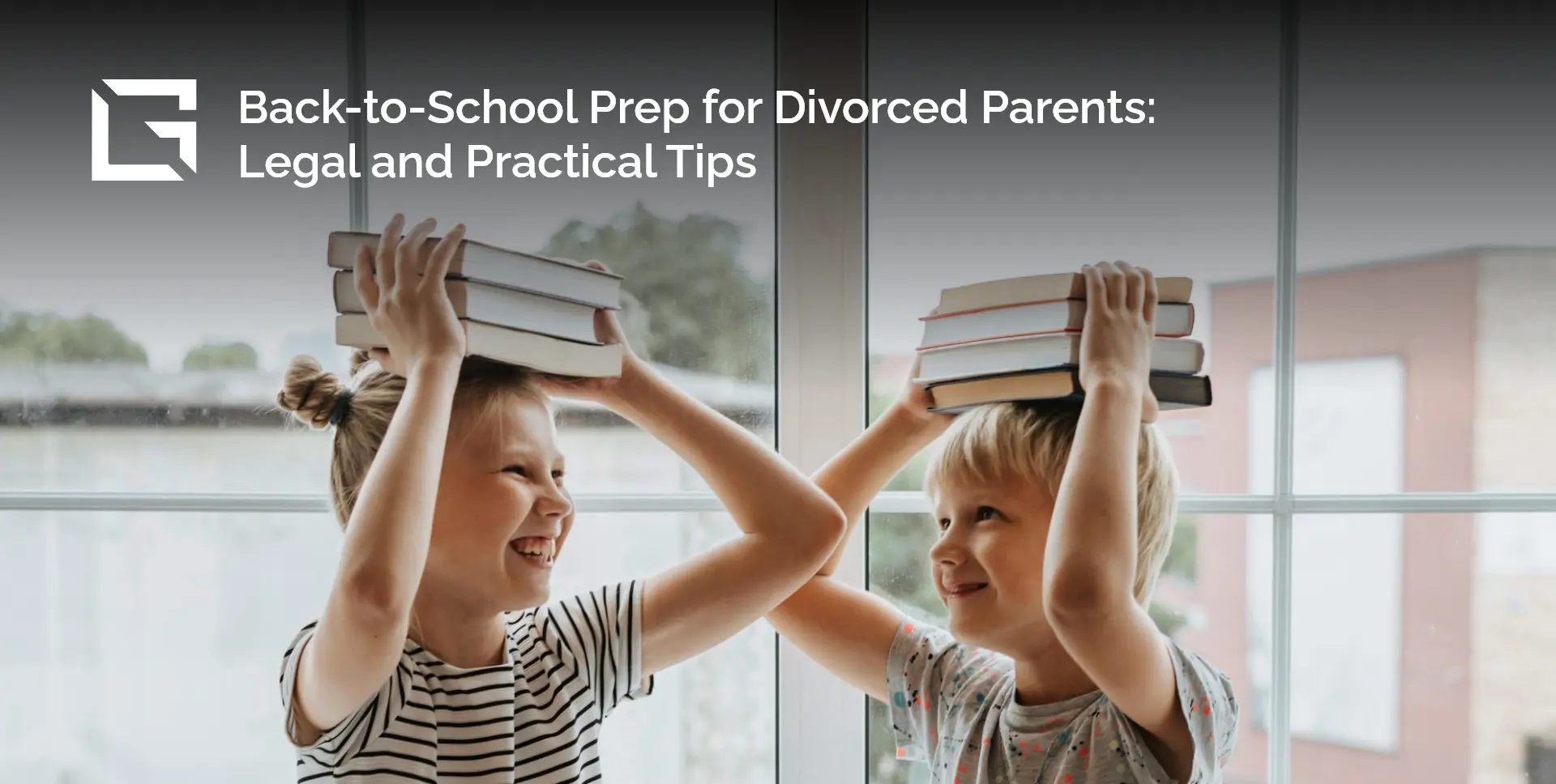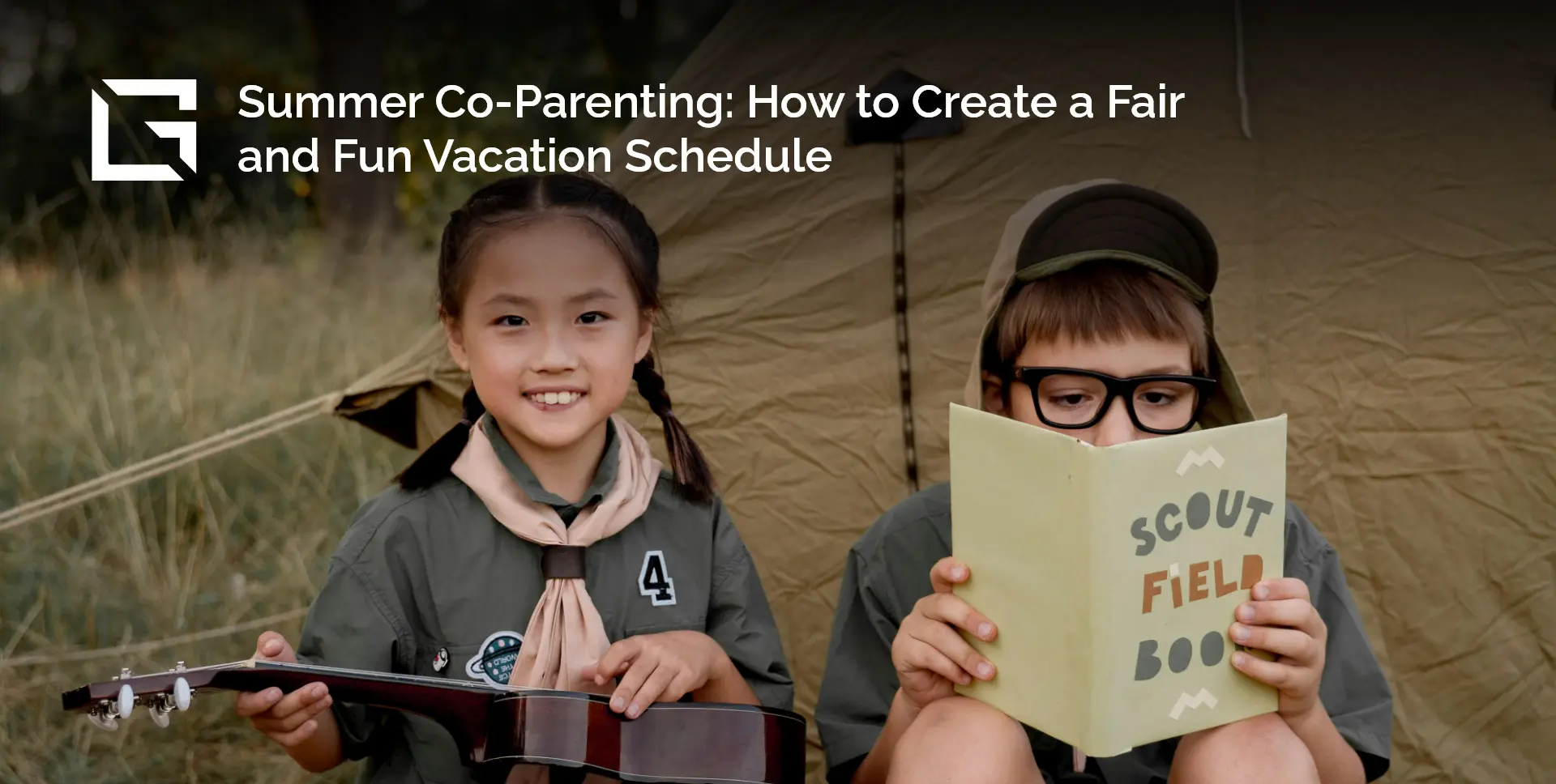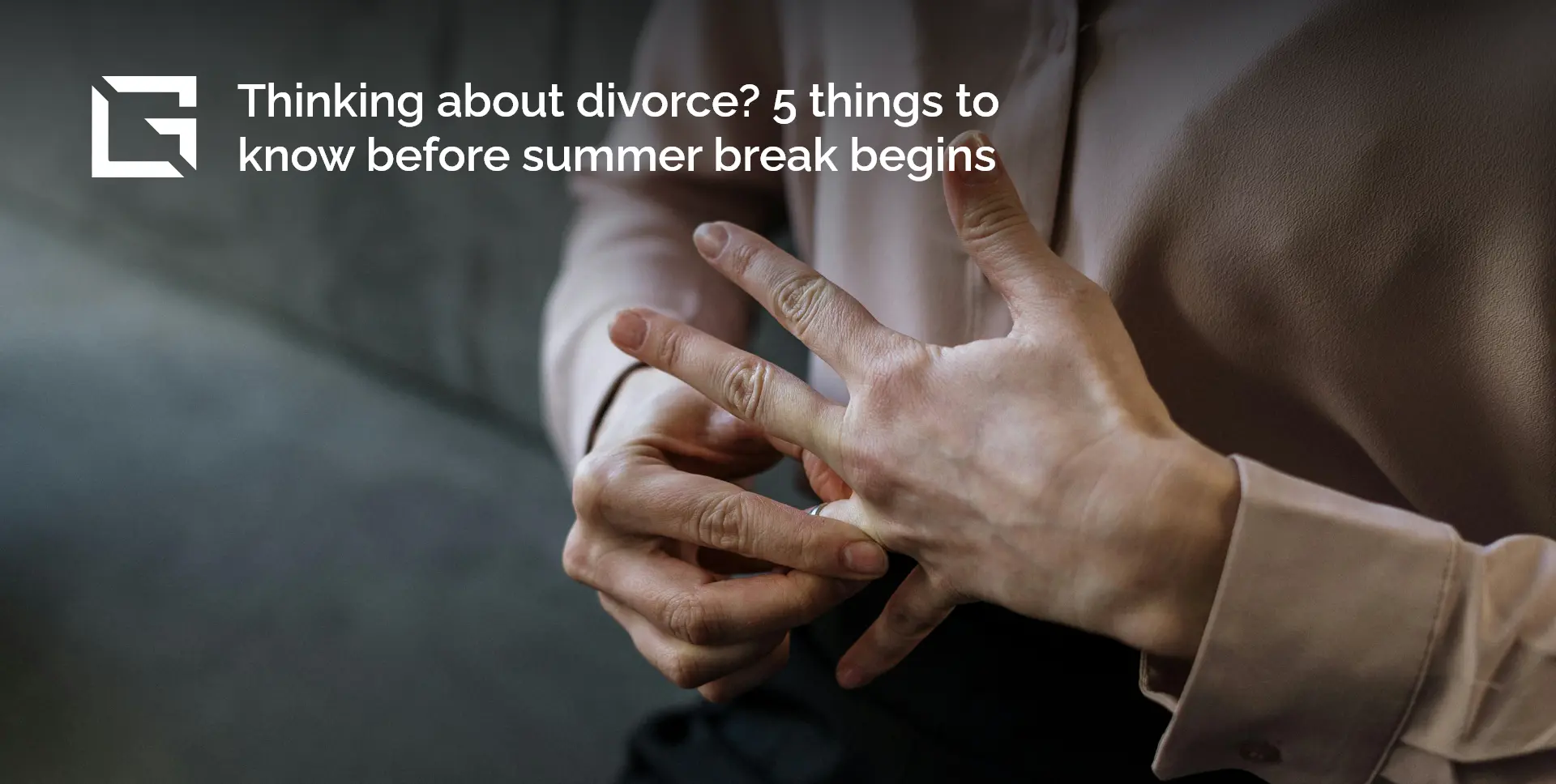Lisa still remembers the words her 14-year-old son, Ethan, whispered on the couch one Friday night. She had just finalized the divorce with her ex-husband two months prior. Their parenting plan was equal—week on, week off. But something shifted. Ethan no longer wanted to bounce between homes. He wanted permanence. He wanted his dad’s house to be his primary home.
Lisa’s heart sank. She wondered:
Does Ethan get to decide where he lives?
Does a teenager’s voice matter in court?
And if it does… how much?
If you’re a parent asking the same questions, you’re not alone.
Custody questions are among the most emotionally charged and legally complex issues divorcing or separating parents face, especially when teenagers are involved. In this blog, we’ll break down how Utah (and many other states) handles teen preferences in custody cases, bust some common myths, and help you understand what “best interest of the child” really means when your child is almost grown.
Teen Preferences: What the Law Says
Let’s clear one thing up right away:
No state gives a teenager the absolute right to choose where they live.
That said, most states, including Utah, do consider a child’s preferences as part of the overall custody evaluation, especially as the child gets older. In Utah, the law doesn’t state a specific “magic age” when a teen can decide. But the court may give more weight to a teen’s wishes around age 14 and up, depending on their maturity and the circumstances.
“The desires of a child 14 years of age or older shall be given added weight, but are not the sole determining factor.” – Utah Code 30-3-10(5)(b)
So, yes—your teen’s voice matters. But it’s one voice among many in the courtroom chorus.
Why Teen Preference Isn’t the Whole Story
While it might feel like your teen knows what’s best for them—and they certainly feel that way—judges don’t see it that simply.
The court’s primary lens is the “best interests of the child.”
Here are some factors judges weigh when making custody decisions:
- Emotional ties between the child and each parent
- Stability of the home environment
- School and community ties
- Parental involvement in education, medical care, and extracurriculars
- Ability of each parent to meet the child’s emotional and physical needs
- Any history of abuse, neglect, or substance use
Teen preference is considered, but it must align with what’s healthy and sustainable.
For example, if 15-year-old Ethan wants to live with Dad because Dad lets him play video games all night, doesn’t enforce homework, and has no curfew—well, that preference won’t carry much weight.
But if Ethan prefers Dad’s house because it’s closer to school, has fewer disruptions, and he feels more emotionally supported, now we’re talking about mature reasoning, which courts take more seriously.
But My Teen Is Almost 18…
This is another question we hear often at Gibb Law Firm:
“My daughter is 17. Doesn’t that make her an adult?”
Not quite.
In Utah, a child becomes a legal adult at 18. Until then, the custody order governs. However, judges understand that forcing a nearly grown teen to live somewhere against their strong, mature wishes can cause more harm than good.
Many courts will defer to a 16- or 17-year-old’s preferences if they seem well-reasoned and the home environment is appropriate. But even then, a formal modification of the custody order is required to make it official.
Real-World Example: When Teens Speak, But Judges Decide
Take this scenario:
16-year-old Maya wants to move in with her mom full-time. Dad has stricter rules, and she says they “don’t get along.” She also claims Mom is more supportive and flexible.
The court looks deeper.
Turns out, Maya’s grades have dropped since she started living mostly at Mom’s. Mom isn’t attending school conferences. Maya has been skipping classes to hang out with older friends. Meanwhile, Dad has always been the one managing her school responsibilities, medical appointments, and structure.
The judge listens to Maya, but ultimately denies the custody change. Not to punish her, but because the move didn’t serve her best interests.
Common Misconceptions
Let’s bust a few myths we hear from concerned parents:
Myth 1: If my teen wants to live with me, I automatically win custody.
Truth: Courts consider many factors, not just teen preference.
Myth 2: Teenagers testify in court about who they want to live with.
Truth: In Utah, teens generally do not testify in open court. Their wishes are gathered privately—often through a guardian ad litem or court-appointed evaluator—to protect them from courtroom pressure.
Myth 3: Once my teen chooses, I don’t need to go back to court.
Truth: Any change to a custody order must go through the court system to be legally enforceable.
Talking to Your Teen About Custody
- Conversations about custody can be emotional landmines, but avoiding them only adds pressure. Here’s how to handle the topic with compassion and clarity:
- Keep the conversation open and age-appropriate. Ask open-ended questions. Let them share without fear of hurting your feelings.
- Avoid putting them in the middle. Don’t guilt-trip them or speak poorly about the other parent. That only increases their anxiety.
- Acknowledge their feelings. Even if you disagree with their choice, recognize their need for agency.
- Be honest about the process. Let them know their voice matters—but it’s one of many that the court considers.
How Parents Can Handle Disagreements
If you and your co-parent disagree on honoring your teen’s preference, it’s important to:
- Stay calm and collaborative: Try mediation before running to court.
- Document concerns: If your teen’s preference seems driven by unsafe or unhealthy behavior at the other home, keep detailed records.
Talk to a family law attorney: They can assess whether a formal custody modification makes sense.
When to Call a Lawyer
Custody decisions involving teenagers are rarely black and white. If your teen is expressing a strong preference, or you and your co-parent are at odds about what’s best, it’s time to consult a family law attorney.
At Gibb Law Firm, we help Utah families navigate these delicate situations with compassion and clarity. Whether you’re seeking a custody modification, considering mediation, or just want to know your options, we’re here to guide you every step of the way.
Final Thoughts: Let the Child Be Heard, But Not Burdened
Teenagers are caught between two worlds. They crave independence but still need guidance. When they express a preference about where to live, it usually comes from a place of deep emotional need, not legal strategy. The court’s job is to ensure that need is heard, but also weighed carefully against their long-term well-being.
As parents, your role is to support your child’s voice without turning them into a pawn.
As attorneys, our job is to help you do that in a way that protects your child and your peace of mind.
Need Help with Custody Questions?
Gibb Law Firm serves families throughout Kaysville and surrounding Utah communities. If your teen is asking to live with one parent full-time, and you’re unsure what steps to take, schedule a free consultation with us today.
Book a free custody consultation or call us directly at (801) 725-6035. Your child’s future deserves clarity. Let’s figure it out together.
Disclaimer: This article is for informational purposes only and does not constitute legal advice. Please contact us to discuss the specifics of your situation.



